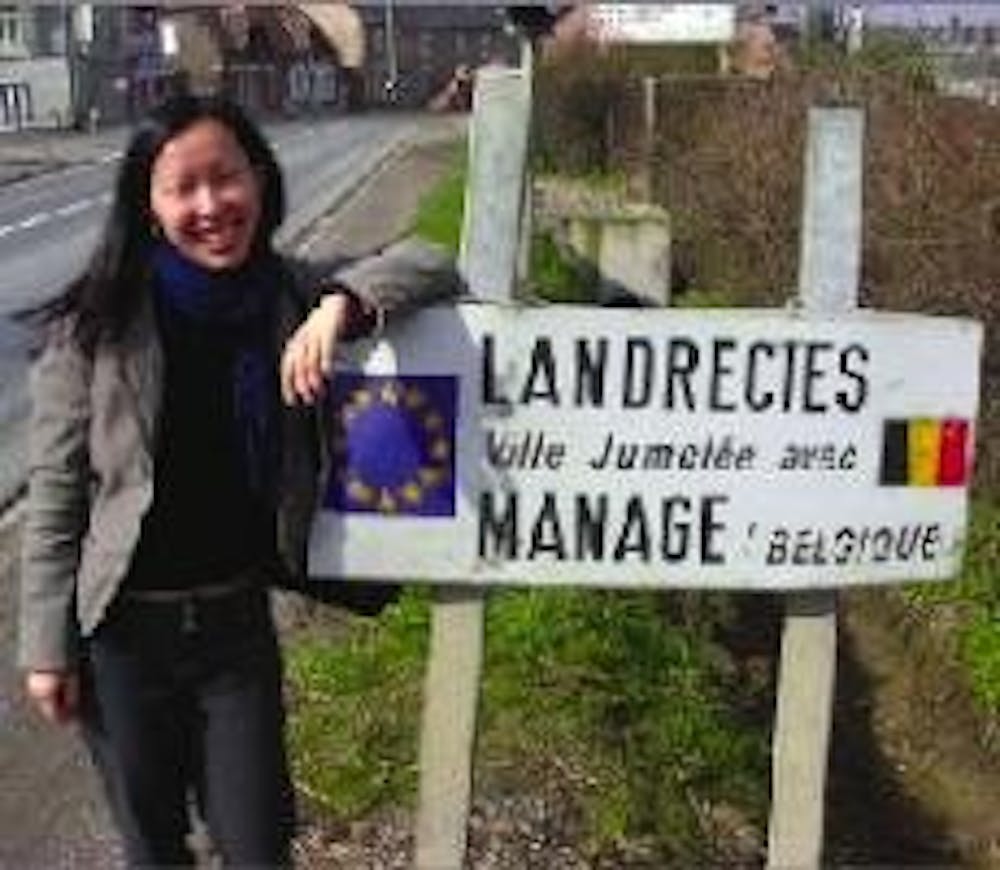Seven AU students and alumni are 2006 Fulbright scholars, and one student is an alternate, according to Francine Blume, acting executive director at the Career Center.
The results are the culmination of a rigorous process that begins a year before the applicants can expect to hear if they have been selected, Blume said. Most applicants are rising seniors, but many graduate and doctoral students also apply, she said.
Potential applicants at AU must express interest in the Fulbright in the spring, Blume said. Students have the summer to develop their research plans. First drafts of proposals are due Aug. 1 and AU's final deadline for proposals is the end of September, she said.
Internal panels interview and rank each applicant based on the qualities of the applicant's proposal and defense of the proposal, Blume said. This year, AU had 28 complete applications.
While the process is intense, students always say it is a rewarding experience because it forces them to decide what kind of research they want to do and how they plan to do it, Blume said.
"We've never had a student say, 'Boy, that was not worth it,'" she said.
Eve Bratman, a doctoral-level student in the School of International Service, said the writing process helped her develop her project more clearly.
"The process of writing the Fulbright application was really helpful in terms of pushing me to articulate my project more clearly, get a lot of feedback on it and also involved deadlines which forced along the process of developing the project," she said in an e-mail.
Bratman will use the grant to conduct her dissertation research, which concerns social movement activism over sustainable development projects in the Terra do Meio region of the Brazilian Amazon.
Laura Kurland, a SIS graduate student who also attended SIS as an undergraduate, will be researching in Puno, Peru's third poorest region, to assess President Alejandro Toledo's plans to redistribute political and economic power to local levels of government, giving indigenous populations more control.
Kurland studied for a semester in Argentina and traveled to Peru to see Machu Picchu, where she said she became fascinated about the indigenous people of Peru. She made contact with a nongovernmental organization in Puno when she was working on her senior capstone and decided to base her graduate thesis off of her research.
Kurland said she decided the Fulbright was the best program for her, regardless of its prestigious name.
"Honestly, I just wanted somebody to fund my project to go down there," she said.
Luke Dodds, an alumnus of SIS, has lived in China for over a year and will be teaching English full-time in Northern Taiwan. He said his interest in U.S.-China relations motivated him to apply and said he would like to experience life and opinions different from those of China.
"I'm also ready for a break from teeming seething [metropolitan area] such as Beijing and Shanghai," he said in an e-mail. "A year in a quiet mountain village sounds like the perfect follow-up to the sensory glut of Beijing."
Nina Peacock, an alumna of SIS, will study in London and research the effectiveness of the European Union's approaches to reform in the Middle East and North Africa.
Peacock said she studied abroad in Brussels as an undergraduate, which solidified her interest in the EU. She said she plans to use her French language skills because many North African countries use French.
Last year, AU had 12 Fulbright scholars, one of whom was an alternate whose status was changed, Blume said. There is a strong likelihood that Rebecca Frischkorn, a doctoral-level student in the College of Arts and Sciences who plans to do research in Zambia, will become a scholar, but nothing is definite, she said.
Being a Fulbright alternate is a "gut-wrenching" experience because an alternate can get a call at almost any time saying he or she is a scholar, Blume said. Alternates must wait for other selected scholars to turn down their grants because of other opportunities or situations.
"It's total fingernail-biting time," Blume said.
Fulbright grants are made to U.S. citizens and residents of other countries for educational activities such as advanced research, graduate study and teaching in elementary and secondary schools, according to the Web site of the Council for International Exchange of Scholars, which administers the Fulbright. The U.S. Fulbright Scholar Program sends 800 scholars and professionals every year to over 140 countries.
The other Fulbright scholars from AU are Samuel Colon, Gene Fielden and Rebecca Ratliff.





